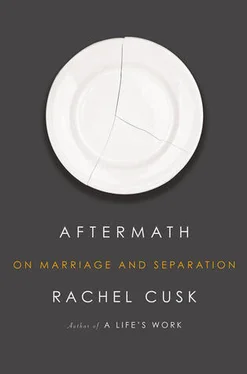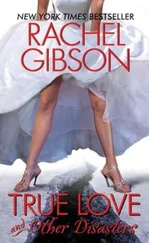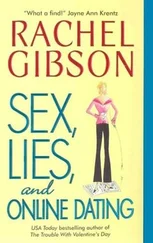Rachel Cusk - Aftermath - On Marriage and Separation
Здесь есть возможность читать онлайн «Rachel Cusk - Aftermath - On Marriage and Separation» весь текст электронной книги совершенно бесплатно (целиком полную версию без сокращений). В некоторых случаях можно слушать аудио, скачать через торрент в формате fb2 и присутствует краткое содержание. Год выпуска: 2012, Издательство: Farrar, Straus and Giroux, Жанр: Публицистика, Биографии и Мемуары, на английском языке. Описание произведения, (предисловие) а так же отзывы посетителей доступны на портале библиотеки ЛибКат.
- Название:Aftermath: On Marriage and Separation
- Автор:
- Издательство:Farrar, Straus and Giroux
- Жанр:
- Год:2012
- ISBN:нет данных
- Рейтинг книги:3 / 5. Голосов: 1
-
Избранное:Добавить в избранное
- Отзывы:
-
Ваша оценка:
- 60
- 1
- 2
- 3
- 4
- 5
Aftermath: On Marriage and Separation: краткое содержание, описание и аннотация
Предлагаем к чтению аннотацию, описание, краткое содержание или предисловие (зависит от того, что написал сам автор книги «Aftermath: On Marriage and Separation»). Если вы не нашли необходимую информацию о книге — напишите в комментариях, мы постараемся отыскать её.
Aftermath: On Marriage and Separation — читать онлайн бесплатно полную книгу (весь текст) целиком
Ниже представлен текст книги, разбитый по страницам. Система сохранения места последней прочитанной страницы, позволяет с удобством читать онлайн бесплатно книгу «Aftermath: On Marriage and Separation», без необходимости каждый раз заново искать на чём Вы остановились. Поставьте закладку, и сможете в любой момент перейти на страницу, на которой закончили чтение.
Интервал:
Закладка:
A man comes to look at the spare room. He is pale and flaxen-haired, with small, almost colourless eyes and sharp little wolverine teeth. He has a tiny battered car he parks in the street outside. Every now and then he goes to the sitting-room window to check for traffic wardens. The room was advertised for rent in the local paper: the phone has rung and rung every day for a week. As soon as I replace the receiver it rings again; I go out and return to find the answering machine full, the red light blinking. Nearly all the calls are from men, men from everywhere and nowhere, men of all kinds: young men and old, foreign and local, gruff and loquacious, determined and indifferent, and all apparently untethered, alone, briefly circling the fixed point of my house while held at some unbreachable distance, like barren planets orbiting a star in the blackness of outer space. Sometimes there is interference on the line, crackling, the sound of windy mountaintops. I am calling about the room. I am calling to enquire about the room. Once or twice a woman has rung: she is looking for somewhere for herself and her boyfriend. She is part of a couple — do I have a problem with that? Her boyfriend works at the bar, the casino, the club down at the marina. Her boyfriend works nights: he likes to sleep during the day. She herself wants to do a course, in aromatherapy, nutrition, languages; she’s thinking about asking at the university; she isn’t quite sure. She and her boyfriend are very relaxed. They are very chilled. They like relaxed, chilled people, people with no worries. They don’t like to get stressed. Do I have a problem with that? I’m sorry, I say. I live here with my children. It’s their home. I’m sorry.
Then one afternoon a man rings sounding anxious and purposeful, as though he’s lost something but is certain to find it again at any moment. His voice suggests neither need nor imposition: this is the man who now stands in my house, looking anxiously and purposefully out of the window at his car. His name is Rupert. For three years he has been living on the other side of the city with his girlfriend, but the relationship has come to an end and he wants somewhere to stay short-term while he looks for a more permanent home. He works long hours for an energy supply company up in town; he needs somewhere to sleep, to hang his suits, to house his television — apparently it’s quite large. While he speaks he looks at me fixedly with his small pale eyes, but whenever I reply he looks shyly down and away to the side. With his fine, almost white hair and his downcast eyes he looks either innocent or guilty, I can’t tell.
The clocks have gone forward and now the evenings are long and as blank as paper. People stay out late on the streets calling and shouting, music pouring from open windows, cars revving and honking in the dusk. Someone new has moved in next door and erected his sound system on the other side of my bedroom wall. All night the electronic pulses probe and torment the space between us. I wander through the dark house, checking the locks on the doors and windows, for it feels as though the outside is coming in, as though a wall of defence has come down, as though the doors and windows may as well not be there at all. We are a house of women and children, but I wonder whether our vulnerability is anything more than something invented to make men feel brave. When there’s a war men go off to it, leaving the women and children behind, and when they return perhaps it is to find that they have made themselves dispensable, like Agamemnon returning to Argos from Troy. I wonder whether we will be safer with Rupert in the house or more at risk. There is a space here, an impression, like a footprint in the sand or a cast, a male declivity in the shape of my husband. Vaguely I try to fit Rupert into it. I imagine him fixing the drains, the door handles, having a look inside the dishwasher to see what’s wrong. Man is either protector or predator, I can’t quite remember which.
Rupert is efficient with his paperwork, his deposit, his references. He brings his iron and his humorous posters, his suits. He brings his television, which stands on a plinth in his room like a vast black blinking god. I give him two shelves in the fridge and he fills them with ready meals for one, the plastic containers neatly stacked in the cold lit chamber like things in a morgue. My husband comes to collect something while Rupert is in the hall and the two of them shake hands.
‘Pleased to meet you,’ they both say.
Agamemnon, in the Oresteia of Aeschylus, returns to his palace in Argos, the victor after ten years’ war against the Trojans. He is murdered by his wife Clytemnestra as soon as he sets foot in the hall, walking over the costly crimson tapestries with which she has laid the palace floor as his bitter homecoming tribute. Later she is murdered in her turn by their children, Orestes and Electra, who cannot forgive her for disposing of their father, imperfect though he was.
My children are interested in the ancient Greeks. They have a surprising knowledge of Greek mythology, know its twists and turns, are familiar with its cast of characters. When they talk about it it’s as though they are talking about something they personally remember. I suppose this knowledge can only have come from books, so it is memory in a way. For a child a book and a memory can be difficult to tell apart. All the same it’s surprising, how much they know. Freud viewed the formation of individual personality as analogous to human history: I like this way of understanding a life, as a re-enactment in miniature of civilisation. According to this analogy the ancient Greeks are the formative phases of infancy, in which the psyche is shaped and given its irrevocable character. So it’s fitting, I suppose, that a child should have a special attraction to these tales of gods and mortals, to the joy and anarchy of the early world, in which fantasy and reality have not yet been separated, in which the moral authority of God the father has not yet been asserted and guilt and conscience do not yet exist.
We once visited what is said to be Agamemnon’s tomb, on a family holiday in the Peloponnese. It is a vast conical space dug beneath a hot hillside at Mycenae where bees buzz amid the wildflowers, the tomb itself beehive-shaped, as though in acknowledgement of what is really the only immortality, the return of all things human to the eternal substances of nature. Clytemnestra’s tomb is there too: the two are far apart, for this is a story not of marriage but of separation, of the attempt to break the form of marriage and be free. There are two tombs, just as there were two people: separation is a demand for space, the expression of the self’s need to regain its integrity. The double tomb, like the double bed, symbolises the power of marriage to erase these distinctions. At night I used to wake up and ask myself the question, who am I? For there in the darkness, in the marital bed, I felt myself wheeling on the edge of a black chasm, wheeling with the planets in outer space, hurtling through a blackness rashed with stars. The reality of my room, my home, my life couldn’t seem to anchor me. I was frightened of dying, not because I loved life but because I couldn’t distinguish myself, couldn’t gather together as one entity this self whose existence posited the fact of non-existence. It was like seeing a shadow without being able to see what cast it. I didn’t know who I was: yet ‘I’ would one day die.
On the hot hillside above the tomb I told my children the story of the Oresteia , hardly knowing what it was I was telling them. Does Clytemnestra know that Agamemnon is coming home? Is the murder calculated, a plan shaped during the years of his absence, or is it a sudden, unpremeditated explosion of violence? Yes, she knows: she keeps a guard posted day and night on the palace walls as a lookout. She has had bonfires laid on every hillside between Argos and Troy, waiting to be lit in the event of the warriors’ return. It is the behaviour of a tyrant, a dictator, this obsessive news-gathering, this round-the-clock surveillance. And indeed this is how Clytemnestra’s subjects speak of her, as a kind of Iron Lady, a man in a woman’s body. They too watch for those beacons to be lit, signifying victory at Troy and the return of their king. They are uncomfortable with this female version of power. It is a kind of theft, when a woman behaves like a man, or indeed a man like a woman. There is the feeling that someone’s been murdered, been done away with in the robbery.
Читать дальшеИнтервал:
Закладка:
Похожие книги на «Aftermath: On Marriage and Separation»
Представляем Вашему вниманию похожие книги на «Aftermath: On Marriage and Separation» списком для выбора. Мы отобрали схожую по названию и смыслу литературу в надежде предоставить читателям больше вариантов отыскать новые, интересные, ещё непрочитанные произведения.
Обсуждение, отзывы о книге «Aftermath: On Marriage and Separation» и просто собственные мнения читателей. Оставьте ваши комментарии, напишите, что Вы думаете о произведении, его смысле или главных героях. Укажите что конкретно понравилось, а что нет, и почему Вы так считаете.












